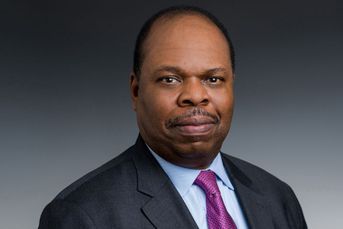Wells Fargo could be putting more of its focus on wealth management

Speculation is mounting that the bank is dumping some lines of business to focus on just a few areas, including financial advice.
Wells Fargo & Co. appears to be paring back on its businesses, and that could be a good thing for the 14,000 financial advisers and registered reps who work under the roof of its brokerage and advisory subsidiary, Wells Fargo Advisors.
After all, fewer business units at Wells Fargo could mean more focus on banking and financial advice. Those are the core businesses of the ailing franchise, which has been operating under storm clouds since September 2016, when the company revealed its employees, under pressure from management, created millions fake customer accounts.
Since then, some Wells Fargo advisers have had to deal with uncomfortable conversations with clients regarding why they continue to work at a firm connected to such sordid practices.
According to recent reports, Wells Fargo is getting ready to jettison certain unessential businesses.
On Sunday, Reuters, citing people familiar with the matter, reported that Principal Financial Group was in advanced talks to buy Wells Fargo’s retirement plan services businesses, in a deal that could exceed $1 billion and be announced by the end of the month.
The report noted that the company last year also announced deals to sell 52 branches across the Midwest and its Puerto Rico auto finance business.
Such a flurry of activity led one adviser at Wells Fargo Advisors to raise the possibility of more deals for Wells’ non-core businesses.
The adviser noted that Kristi Mitchem, the former head of the bank’s asset management group, left earlier this year to lead the global asset management unit at BMO Financial Group, a sign that more changes might be coming.
“Is asset management the next up on the list of divestment,” asked the adviser, who did not want to be identified.
When asked about the bank’s retirement plan services and asset management businesses, a spokeswoman, Shea Leordeanu, said the company did not comment on market rumors, and that a pair of co-CEOs was running Wells Fargo Asset Management.
Ms. Leordeanu also pointed to an 18-month-old statement on the company’s website regarding Wells Fargo’s goals that listed “customer service and advice” as first up on a list of areas where the company wants to lead the financial services industry.
And why shouldn’t Wells Fargo focus on financial advice and advisers as it looks to atone for its series of embarrassing and serious mistakes in the way it treated its customers?
It is clearly focused on trying to stop the exodus of advisers at its brokerage units and position itself to begin growing the business again.
And why not? Wells Fargo Advisors, despite losing hundreds of advisers since the report of the 2016 bank scandals, still packs a financial wallop. In a recent filing with the Securities and Exchange Commission, Wells Fargo Clearing Services, the official name of Wells Fargo Advisors, said it plans this month to pay a $2 billion dividend to its parent company. It is the first such dividend since 2015, when the firm paid three such dividends for a total of $1.2 billion.
Since the start of the year, Wells Fargo Advisors has been making a series of moves to hang onto experienced advisers and attract new talent.
Those include: changing its succession plan by offering a bonus to advisers who stay on until retirement and giving financial help to young advisers acquiring the business of those advisers who are retiring; broadening its platform to allow its reps to work as distinct registered investment advisers, a move its wirehouse competitors have not yet made; and currently offering one of the most lucrative recruiting deals in the retail wealth management business.
So, it’s clear that Wells Fargo is investing in the financial advice business while considering dumping other lines of business. And it’s clear that Wells Fargo Advisors is generating the cash flow to pay significant dividends up the corporate ladder.
What is not clear is how the financial advisers will regard the company’s effort. Will they embrace the strategy, particularly the attractive compensation and the broader platform, or will more seek to flee?
Learn more about reprints and licensing for this article.








